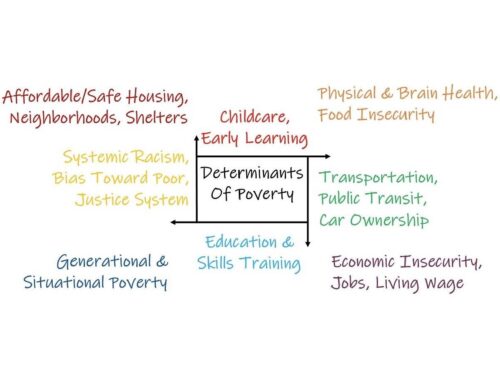The following is from Carrie Montgomery, Tomás Vargas, and Dan Jennings, experts on the subject of the formerly incarcerated returning to society.
With an active Bridges collaborative, there several ways in which a community can assist returning citizens in their journey toward successful reintegration:
 Bridging social capital: It is crucial to have individuals within the community who are dedicated to advocating for the rights and needs of returning citizens. These individuals can act as bridges between the returning citizens and policymakers, ensuring that their voices are heard and that their unique perspectives are taken into account when shaping policies and programs. By providing a platform for returning citizens to express their experiences and challenges, communities can foster empathy, understanding, and positive change.
Bridging social capital: It is crucial to have individuals within the community who are dedicated to advocating for the rights and needs of returning citizens. These individuals can act as bridges between the returning citizens and policymakers, ensuring that their voices are heard and that their unique perspectives are taken into account when shaping policies and programs. By providing a platform for returning citizens to express their experiences and challenges, communities can foster empathy, understanding, and positive change.
Job placement and federal incentives: Providing returning citizens with work opportunities is crucial for their successful reintegration. Communities can collaborate with local businesses to create job placement programs specifically designed for individuals with criminal records. Additionally, federal bonding programs and work opportunity tax credits can incentivize employers to hire returning citizens by reducing their liability and offering financial benefits.
Social support networks: Establishing and strengthening social support networks is crucial for returning citizens. Community organizations, faith-based groups, and mentoring programs can offer guidance, mentorship, and emotional support to individuals during their reentry process. These networks can help foster a sense of belonging, reduce isolation, and provide valuable resources for personal and professional growth.
Fair background check policies: Communities can advocate for fair background check policies that consider the rehabilitative efforts and progress made by returning citizens. Implementing a “seven-year rule,” where certain criminal records are treated similarly to bankruptcy and no longer hinder employment or housing opportunities after seven years, can provide a fresh start and ensure that individuals are not perpetually punished for past mistakes. This might include providing statewide or federal funds allocated to landlords, similar to incentives given to employers, for offering justice-involved individuals a fair chance to secure a safe living environment.
Restoring voting rights: Restoring voting rights to returning citizens is an essential step toward their full reintegration into society. Communities can support initiatives and advocate for policies that remove voting barriers for individuals with criminal records who have completed their sentences. Ensuring that everyone has a voice in the democratic process promotes a sense of belonging and encourages active civic engagement.
Implementing common sense programs inside facilities: Many facilities purchase programs and rely on department staff to implement such programs. In most cases, these programs are not practical solutions to helping inmates understand the outside world as it is currently and how to navigate freedom. Programs inside facilities need to help inmates build real-world, practical skills, not simply theoretical knowledge of the world. Programs such as Correctional Industries have fallen out of favor for more classroom-based programs.
We need to start asking how can we come beside this person and help bring them up, not what we can do to pacify this issue and sweep them under the rug.
These will be the citizens who will turn their lives around and will pull more returning citizens up with them!
Let’s take a look at it from this perspective: If your loved one had paid their debt to society and you knew they had been transformed, wouldn’t you want them to be offered opportunities to make the rest of their life healthy and successful?







